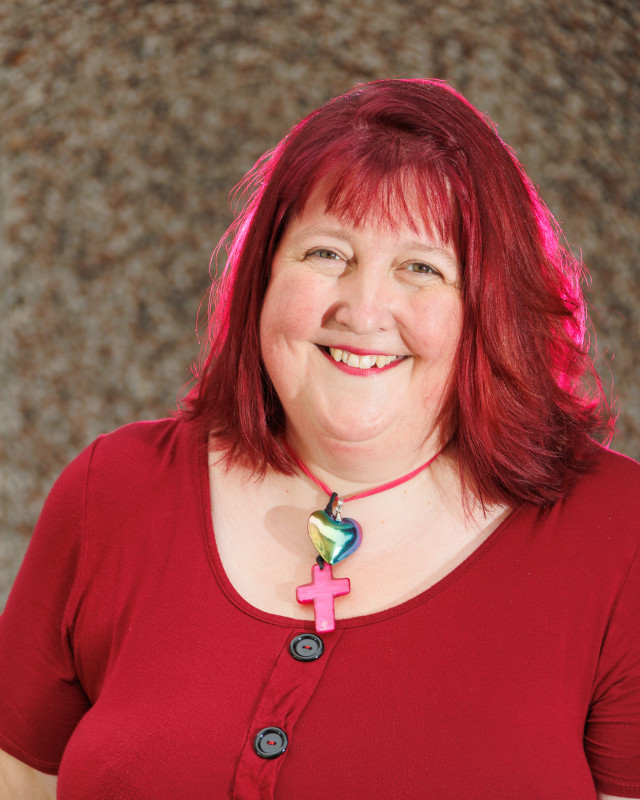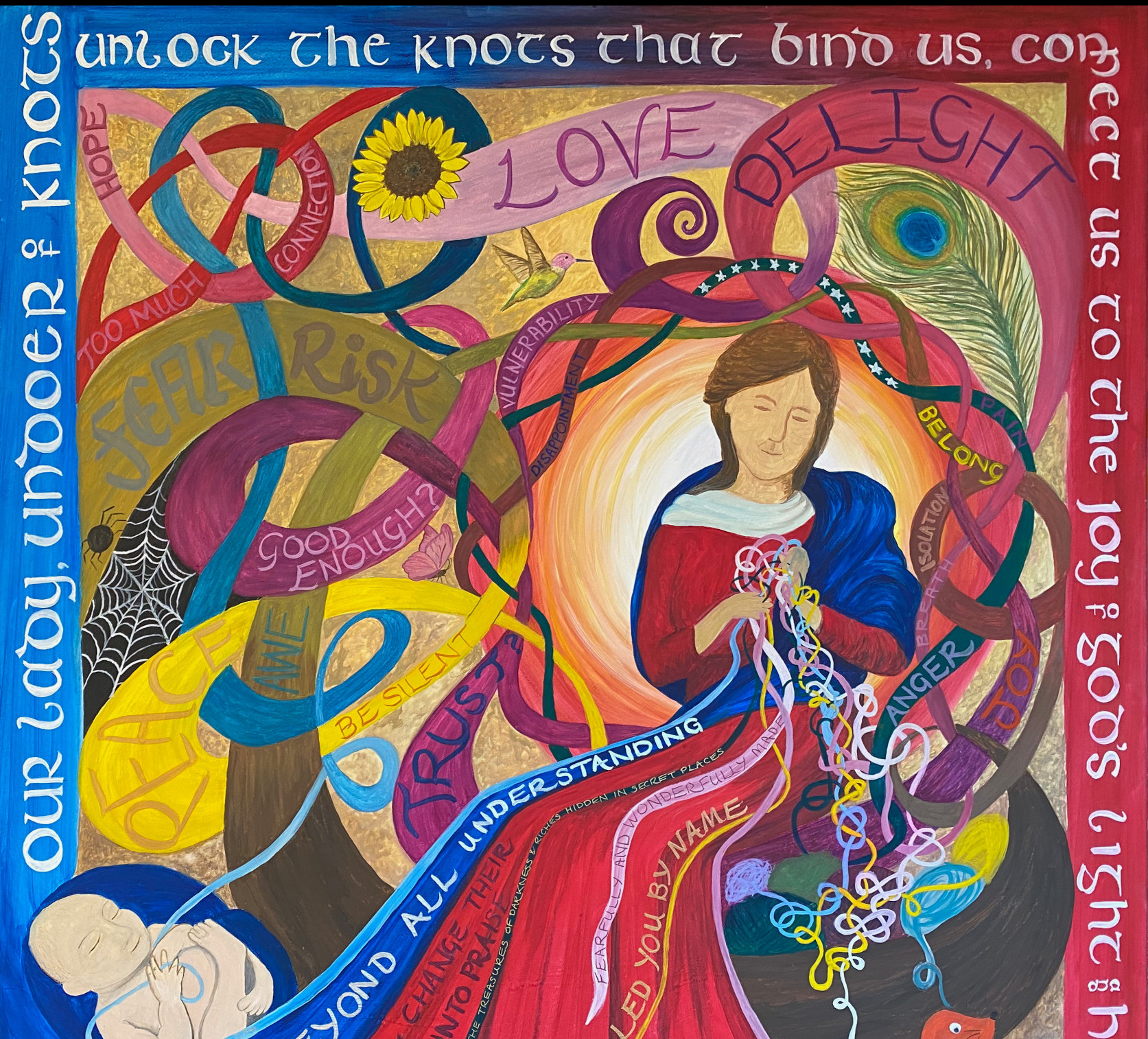By The Revd Rachel Noël

When I started training for ministry at the Southern Theological Education and Training Scheme (STETS) based in Sarum College my tutor encouraged me to explore to the edges of my faith and beyond, to be willing to sit lightly to what I already ‘knew’, to be open to encounter God through my studies. I am so grateful for this wisdom, which resourced and sustained me through my ministerial training, helping me to be open to God in unexpected ways, and through unexpected voices.
I thrived during college, really valuing the way that the leaders engaged with the students, valuing feedback, developing the course together. My training nourished my passion for theology, seeking understanding, exploring concepts, my thinking being expanded as I engaged with other students, with staff and with the theologians we were studying.
Throughout our training, we were encouraged to write critical incident theological reflections, learning to interrogate our own experiences in ministry, to grow in wisdom, to seek God and develop our practice with greater self-awareness. Dr Beth Dodd supervised my MA dissertation, in which I explored creative process within theological reflection. I had no idea at the time of training how important this practice would become in what unfolded.
I was ordained in 2014, and started my curacy in the Diocese of Winchester. I also became a trustee of STETS and helped to take it through a merger with Sarum College, and subsequently became a trustee of Sarum College, really valuing their passion for learning to nourish the human spirit.
Half way through my third year of curacy, I was signed off by my GP with depression and anxiety. What we didn’t know then is that there are a small percentage of people that have an atypical reaction to anti-depressant medication. I am in that small percentage. This atypical reaction is mania. But I don’t even do ‘atypical’ ‘normally’. My body went to sleep, but my brain went racing. For me, in mania the filters go, I become a more intense version of me. All my quirks that I usually try to keep hidden are all out there, for everyone to see…. For me to finally face up to.
And so I went googling… I’m sure I’m not the only one. At 2am, one cold January morning in 2017, I stumbled across ADHD (attention deficit hyperactivity disorder), and what ADHD looks like in bright girls. There were tears rolling down my face. This was me. This was who I had always been. I didn’t even know this was a thing… This all played out around my 42nd birthday, the answer to life, the universe and everything.
My reaction to medication was so strong, that I was eventually sectioned in psychiatric hospital for 2 weeks. As I went through this, my sense was a deepening of call, of vocation, not just to walk through it, but to be open about that journey. I shared on social media throughout this season, as I went on my ‘NHS sponsored retreat’.
A few weeks later, I was diagnosed with bipolar, ADHD, and sensory processing disorder, and on a waiting list for autism assessment (subsequently confirmed). One week, one person – four new ‘disorder’ labels. (That was an interesting email to Bishops, HR and Archdeacon!)
I hadn’t realised the extent of the middle class, white privilege that I had, until I suddenly found myself the other side of stereotypes, misunderstandings and ignorance. There were assumptions that you can’t be a priest with any of these labels, let alone all of them. Clergy wanted to pray for demons to be released. Others wanting to pray for healing. Telling me that in eternal life, there will be me without all of these labels. In more recent times I’ve been told that the most constructive way I can contribute in group situations is to be silent, that I’m larger than life and should try to be more like other people. Some have ‘advised’ me that it would be better for me if I stepped sideways and did some needlework, making stoles instead of leading churches. (I do enjoy making stoles too!)
Well-meaning people, completely silencing and discounting me, unwilling to recognise God’s presence within diversity. Fortunately, there were a few close to me, willing and able to recognise God at work in all that was happening, discerning the peace and light within it. Helping me to deepen this newfound connection with who I have always been, the understanding of neurodiversity, of the breadth of experience of being human, and that God works in the midst of our real humanity.
My training in Salisbury, learning to interrogate the difficult situations, to reflect, to analyse, to seek to notice God at work, to learn and to grow from that deeper awareness has helped me as I have continued to walk through some really difficult situations. Friendships that I made during my training have helped to sustain me through some challenging times.
Even with all the middle class privilege that I have (which now includes three academic degrees), I have found it really hard to keep walking through this. Many people choose to see just the labels that I have, preferring to operate from misunderstanding, fear, ignorance and stereotypes. I still have regular conversations and messages from people, angry that I claim to be a priest – for them, my diagnoses mean they view me as lesser, that I shouldn’t be in ministry, they question my experiences and spirituality. For me, these contacts reinforce my call to speak openly from my experiences, to help others know that they are not alone.
For me, colour, image, texture are important ways in which I process. I was overwhelmed and delighted when the Church Times (£) chose to use one of my paintings on their front cover last week, as part of opening up conversations about autism and the church. This painting was my theological reflection when I was finding it really hard to sit with God amongst all the mess, the complexity, the pain, to live with others fear and keep turning to God.
I’m hopeful there will be further conversations and wider engagement with the breadth of ways that people encounter God, and the different ways in which people might participate in our churches, including autistic and other neurodivergent ways of being.
Here’s an example tweet to show why these conversations are so important:

The Revd Rachel Noël is vicar of St James, Pokesdown in Bournemouth and contributed to the Church Times article: Autism: Adventures Beyond the Neurotypical (19 May 2023).

Leave a Reply